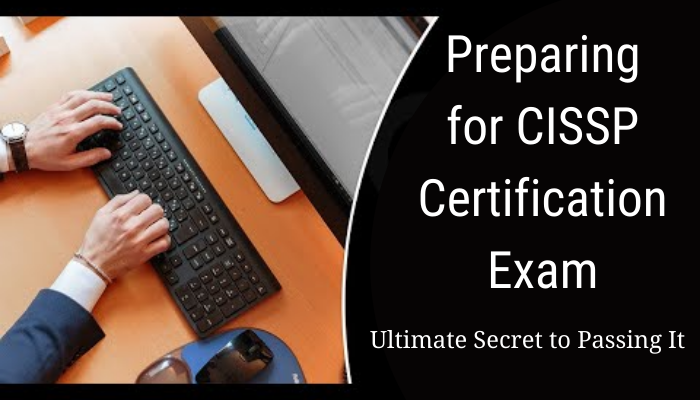Certified Information Systems Security Professional or CISSP credential is an innovative and challenging examination that evaluates the skills of information security professionals and proves their abilities to secure a business environment.
Almost every day, around 10,000 jobs are offered on job posting websites looking for a Certified Information Systems Security Professional (CISSP). This clearly shows a requirement for skilled Information Security specialists and CISSPs in particular, which is great news for aspiring CISSP applicants.
Target Audience
The CISSP is best suited for seasoned security practitioners, managers, and executives involved in certifying their knowledge across a broad spectrum of security practices and principles, comprising those in the following positions:
- Chief Information Security Officer
- Chief Information Officer
- Director of Security
- IT Director/Manager
- Security Systems Engineer
- Security Architect
- Security Consultant
- Network Architect
- Security Analyst
- Security Manager
- Security Auditor
Reasons to Achieve CISSP Certification
CISSP Salary is Appealing
The average CISSP salary is $131,030 per year. A Global Information Security and Workforce study found that CISSP professionals receive approximately 25% more than non-certified professionals.
Move Your Career Forward & Improve Your Career Development
The need for ISC2 Certified Information Systems Security Professional is higher than certification holders. Once you receive this ISC2 certification, you will be desired by leading tech organizations such as IBM, Google, Hewlett-Packard, and many more.
Sets You Apart from Other Candidates
The CISSP exam is very tough to pass. Earning the CISSP confirms that you are an expert industry professional. You will have the solid experience to give satisfactory cybersecurity leadership and guidance to the organization you work for.
A Master in the Cybersecurity Landscape
By receiving a CISSP certification, you prove that you have the skills required to counter the worst threats and take on more thought-provoking and critical projects. It assures that a Certified Information Systems Security Professional perceives all facets of information security and, most importantly, how the principles of the information security environment they work on will communicate with the overall organizational ecosystem.
Robust Practical Cybersecurity Experience
You have to demonstrate the equivalent of four years’ full-time work. Moreover, you need the endorsement of an existing (ISC)² certificate holder who can affirm your experience and good qualities. Ultimately, CISSP certification holders must complete a continuing professional education program of 120 credits over three years to keep the certification.
Benefits To the Organization:
CISSP certification is offered by the ISC2 (International Information Systems Security Certification Consortium). It qualifies professionals with excellent technical and managerial skills with experience and dominance to design, design, implement, manage information security programs, and secure organizations from malware and other wicked attacks.
Compliance with business regulations requires security policies and procedures in both the private and public sectors. In this way, organizations must lower risk by presenting long-term security standards and frameworks. There are unanticipated, anonymous threats that businesses are vulnerable to when they join the Internet and intranets through critical applications, and this inevitable situation can be resolved with CISSP.
- Organizations with professionals having CISSP certification can secure data within the organization can deliver greater brand trust
- Encourage more trust among clients
- CISSP assures organizational security, compliance, and protection
- Certified Information Systems Security Professional also comprises appropriate security practices that guarantee that everything is in order and that your team in a BYOD situation has protected access to data stored by the organization.
What is the Best Way to Pass the CISSP Exam?
To make your CISSP certification exam preparation easy, you need to carry out your preparation in an organized way.
1. Schedule Your CISSP Exam & Make A Practical Study Schedule
Being the sought-after cybersecurity certification, plenty of resources are available for CISSP exam prep. The CISSP syllabus is very massive. So, you need to devote a considerable amount of time to CISSP exam preparation.
You need to read over the CBK completely – all eight domains – study each section with care, take the CISSP practice exam, revisit CISSP syllabus topics that seem difficult to you, and go to online forums for comprehensive insight. It’s a whole lot of things to learn in this exam.
If you don’t plan and account for everything – and make sure that it fits your schedule – you might become devastated and stressed.
The best way to avoid this is by forming a practical study plan that considers the exam date and sets aside time for daily exam preparations. Preferably, you should have sufficient time to go through one CBK domain per week.
2. Determine Your Learning Method
One might claim that you can be more focused when studying alone than when you’re a part of a study group. Moreover, there are other advantages of self-study worth mentioning.
It’s much economical than paying for a training course. Also, you don’t have to bother with organizing meet-ups, and you can study – and take breaks – whenever you feel like it.
However, going down the self-study route means that you’ll miss out on a more in-depth understanding of specific topics, as well as technically intricate details and insights that only coaches can provide. We’re not advising you to ditch your go-to learning style – it got you this far in your career, after all.
However, it would be best if you still considered joining a boot camp to prepare for the Certified Information Systems Security Professional exam, too.
The training is much more fast-paced and rigorous, but you get a chance to learn from experts in the field. Plus, there’s a factor of discipline and regularity that typically isn’t sighted in the self-study method. The downside is that training courses cost a lot of money.
If you can spend, the best way would be to take up training course along with self-studying.
3. Make Most Out of Available Study Resources and Take CISSP Practice Exam
The Official (ISC)2 Guide to the CISSP CBK is, of course, the best study resource, as an authentic source publishes it. However, don’t restrict yourself to one study source only, especially when there are beneficial resources for CISSP training online available online.
Also, remember that the three-hour-long CISSP exam includes around 100-150 questions. That gives you less than two minutes for each of them. Outstanding theoretical knowledge and knowledge of all eight domains won’t be sufficient; you’ll also require excellent time management skills.
And that’s where taking online CISSP practice tests can help. There are a lot of websites that offer CISSP practice exams, which will be helpful for two reasons:
First, you’ll get a possibility to see how competently you understood the topics and what topics require further improvement. And second, learn how to complete the Certified Information Systems Security Professional exam in a given time.
Conclusion
Everyone has a different learning style, and it’s all about identifying the best method that works for you. Follow the tips mentioned above and take plenty of CISSP practice exams to get a flying score in the exam.







